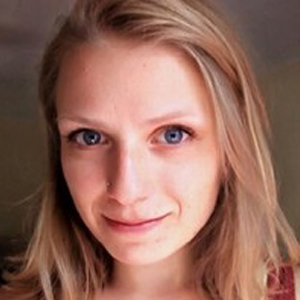Do graduate students need business cards?
I still remember how embarrassed I was at my first biotech industry networking event. As a graduate student, I started attending these events to learn about careers in industry and build my professional network. I had just met a biotech entrepreneur — perhaps my future boss or mentor? Excitedly, I asked if I could email him with questions. He asked for my business card.
Business cards? I’d never had my own business cards. I offered to write out my contact information with a pen and paper … which I then couldn’t find in my purse. The entrepreneur handed me his card. “Here’s my card if you ever need to get in touch,” he said, rescuing me from my embarrassment, and then joked, “But don’t let me catch you here again without business cards.”
At my next networking event, I was prepared. Tucked in my purse were freshly printed business cards. On the flip side of each card I had added my graphical abstract and keywords for my research. That idea came to me after sorting through business cards from my first networking event and seeing how similar they were; I wanted my cards to stand out.
That night I handed out a dozen cards. I encouraged each new contact to visit my LinkedIn page. It worked. Eye contact, an introduction and small talk, a handshake, and my business card led to dozens of LinkedIn profile views, emails and connections. With these cards — and my newfound confidence — I am beginning to build a solid professional network.
Exchanging business cards can mark the first step toward a lasting connection with a colleague or possible future employer. It’s not only sharing information but also an agreement to contact each other freely when needed. For me, business cards took an introduction to the next step in communication: phone calls, emails and LinkedIn messages. However, not all graduate student career paths include the type of networking that requires business cards.
Cards are less useful in the academic world. If you seek a job as a postdoc or in academia, it’s more important to have a personal endorsement from your research advisor or someone in your field. Some academic fields are so small, specialized or close-knit that they don’t require a broad network. Ask your mentor or see for yourself at a conference whether people in your field use business cards.
As the path to becoming a professor grows increasingly difficult, many new Ph.D.s are moving away from academia and into the private sector. In the fast-paced industry culture, career changes are more common than for a tenure-track professor. A good first impression — including your business card — can spur a future employer to contact you when a position at their company opens.
Business cards are the norm in East Asia and parts of Europe. If you network or job hunt abroad, bring business cards and learn the local culture of when and how to exchange them. What hand do you use to present your card? What should you say after handing someone your card? Do you need to translate your card into the local language?
And if you’re interested in freelancing, consulting or starting your own business, consider business cards and/or a business card-like logo for virtual networking. These self-promotion materials catalyze connections with clients, recruiters, representatives or independent contractors. Lastly, people with advanced biotech degrees can find careers in science policy or patent law, fields that commonly network with business cards.
These days, I always keep a few business cards handy. I’ve handed them out everywhere from grocery store checkout lines to ski lifts. I’m meeting people, learning names and career positions, and expanding my LinkedIn network. I’m even matchmaking within my network. When my friends talk about future careers, I’ve started saying, “I know someone who …”
And now, when I walk into the brewery for that monthly biotech networking event, I move with confidence. The entrepreneur who first suggested I needed business cards is my LinkedIn contact. I invited him to my university to help out with a grad student networking event I organized, and he complimented me on how far my networking skills have come.
With a couple of years of grad school to go, I haven’t landed my dream job yet, but I’m equipped with the soft skills I need to find and land an industry job. With my business cards and my newfound self-assurance, I know I make a great first impression.
Enjoy reading ASBMB Today?
Become a member to receive the print edition four times a year and the digital edition monthly.
Learn moreFeatured jobs
from the ASBMB career center
Get the latest from ASBMB Today
Enter your email address, and we’ll send you a weekly email with recent articles, interviews and more.
Latest in Careers
Careers highlights or most popular articles

From humble beginnings to unlocking lysosomal secrets
Monther Abu–Remaileh will receive the ASBMB’s 2026 Walter A. Shaw Young Investigator Award in Lipid Research at the ASBMB Annual Meeting, March 7-10 in Washington, D.C.

Chemistry meets biology to thwart parasites
Margaret Phillips will receive the Alice and C. C. Wang Award in Molecular Parasitology at the ASBMB Annual Meeting, March 7-10 in Washington, D.C.

Decoding how bacteria flip host’s molecular switches
Kim Orth will receive the Earl and Thressa Stadtman Distinguished Scientists Award at the ASBMB Annual Meeting, March 7–10, just outside of Washington, D.C.

Defining JNKs: Targets for drug discovery
Roger Davis will receive the Bert and Natalie Vallee Award in Biomedical Science at the ASBMB Annual Meeting, March 7–10, just outside of Washington, D.C.

Upcoming opportunities
No matter where you are in your career and what future path you aspire to, everyone needs leadership skills. Join ASBMB for practical strategies for building and practicing leadership skills.

Close out ASBMB 2026 with a bang
The closing reception of the 2026 ASBMB Annual Meeting will be held at the Torpedo Factory Art Center in Alexandra, Virginia.

